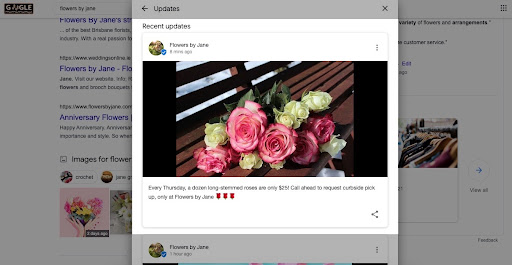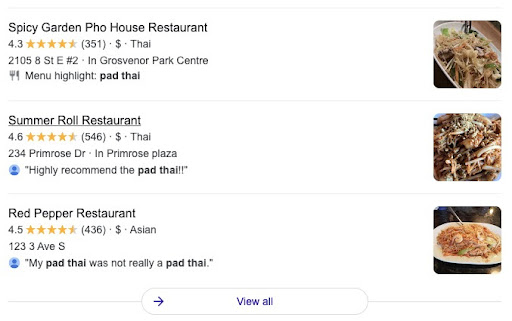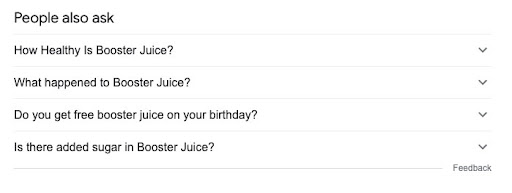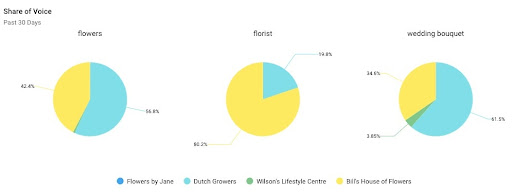The role of SEO reputation management (Updated 2023)
“The best place to bury a body is on the second page of Google.” It’s advice that might likewise be useful to companies that offer SEO reputation management for businesses. They need to ensure their customers have a presence on the first page of Google to get views and clicks. By not being found on the first search page of Google, a business is effectively buried alive in cyberspace.
Grab our white-label reputation management sales playbook to guide your sales pitch and close more reputation management clients.
A Google search is typically among the first things done by an online searcher to see what others say about a business. Links and information that appear on Google can make or break that consumer’s buying decision. Even if great reviews and endorsements about a business exist online, poor or nonexistent search-engine optimization or SEO practices can render that valuable content invisible. Positive information, especially coming from sources outside of a business, promotes a high ranking on Google search. This is the magic behind SEO in online reputation management.
With the right SEO tactics, you can accentuate the positive about a business and stifle the negative. Keep reading to learn three SEO strategies to improve the online reputation of your clients.
Table of Contents
- What is SEO reputation management?
- The connection between Google reputation management and reputation SEO
- 4 SEO online reputation management strategies
- 5 SEO reputation management tools to get started with
- SEO for reputation management with Vendasta
What is SEO reputation management?
SEO is the effort to bring customers and traffic to a website through the use of keywords and other search-optimization tactics to improve organic search results. It can be a highly technical process, involving optimizing website structure to allow Google to crawl and index the site. Here’s more information about how Google search indexing works.
Online reputation management is the act of managing online reviews and mentions of the business. Effective online reputation management ensures potential customers find the most complete information about a business online, through review generation tactics and review monitoring and responding strategies.
Search engine reputation management and optimization are two distinct marketing tactics, though SEO is a component of reputation management. SEO and reputation management share an important goal: to strengthen a business’s brand authority and credibility online.
The connection between Google reputation management and reputation SEO
Google is undoubtedly the most popular search engine, and it's the first stop for many people wanting to research a company or brand. This means that maintaining a positive and visible online presence on Google is vital for any business.
Google reputation management involves monitoring and managing what appears about a business in Google search results, as well as across other Google properties like Google Maps and Google Business Profile (GBP). This includes responding to reviews, creating and updating business profiles, and ensuring accurate information is displayed in search results.
Reputation SEO, on the other hand, is a subset of search engine optimization (SEO) that focuses specifically on managing and improving a company's online reputation. This includes optimizing content, building backlinks, and using social media to promote positive reviews and mentions of the brand.
The connection between Google reputation management and reputation SEO is clear: both strategies are aimed at improving a business's online reputation on Google. By implementing effective reputation management practices and optimizing content for reputation SEO, businesses can increase their visibility in search results and build a positive online reputation.
Google reputation management and reputation SEO work hand in hand as components of an effective marketing strategy. By prioritizing these practices, businesses can ensure that they have a positive online presence on Google, which can ultimately lead to increased brand awareness, improved customer trust, and increased revenue.
4 SEO online reputation management strategies
1. Claim social profiles, especially Google Business Profile
Google describes Google Business Profile as, “a free tool that allows you to promote your Business Profile and business website on Google Search and Maps. With your Google Business Profile account, you can see and connect with your customers, post updates to your Business Profile, and see how customers are interacting with your business on Google.”
When someone searches on Google for your client’s business, the top-ranking results ideally should be controlled by the brand. This could be their website which has been optimized for SEO, online review sites as well as social media profiles.
Make sure that your client is using all the social media sites available and relevant to the business, including Google Business Profile, Facebook, LinkedIn, and Twitter. Essentially, any property outside of the client’s direct ownership (i.e. their website) where they can still maintain and own their presence, should be claimed. Because they rank well, it’s important that businesses “own” this online real estate, to connect with customers and ultimately help with marketing the business.
It is recommended that all of the social profiles are active and contain a wealth of useful information for customers such as contact information and hours of operation. These profiles should also offer unique content in areas such as company descriptions to help these profiles rank better.
Google Business Profile Posts
Again, to quote Google, a Google Business Profile “helps your business show up when it matters most: the moment customers search for your business or products or services like yours on Google Search and Maps. By logging into your Google Business Profile account, you can update your address, phone number, website, open hours, and more to help customers find and connect with your business. Keep your profile updated with fresh photos, special offers, and promotions to make it easy for customers to choose you." Make sure your client claims their profile and keeps it updated with correct hours, payment information, photos, and more. It goes a long way to creating a great first impression with customers.
Then take advantage of Google Business Profile posts. Google Business Profile posts are similar to other social media posts but appear when customers find the business on Google Search or Maps. These posts have an added benefit to regular social media posts in that they allow your client to inject timely offers, events, or news right into Google search results, without waiting for indexing. These tips from Google can help your clients create engaging posts to help disseminate information about the business quickly to their customers.

Google Reviews
Since 91 percent of people trust online reviews as much as personal recommendations, monitoring what people say about a business is crucial. This is especially true with Google reviews, which are highly visible to anyone searching for the business. Reviews on Google appear next to the Business Profile in Maps and Search and help the business stand out on Google. While negative reviews can seldom be removed, good reputation management is just as much about handling the negative as it is positive. Take the time to respond to negative reviews to offer a good customer experience, and hopefully turn something negative into a positive for the customer.
Google Q&A
Google Q&A is a simple tool that allows Google users to ask and answer questions about a business online. It is yet another way to provide customers with useful information, right in the knowledge panel of a Google Business Profile listing. Potential customers can ask any question they want, and Google users have the opportunity to provide meaningful, or completely bogus, answers. The information that potential customers find can have a strong impact on their decision to call or visit a business. Check out this blog for more information about Google Q&A.
Google Q&A should be monitored in the same way as online reviews. Questions and answers can be submitted by anyone, and content can be just as persuasive. It’s crucial to stay on top of Google Q&A as it’s highly visible to searchers looking for information.
Recommended reading: Google Q&A: What is it and why should you care
2. Establish a presence on review sites
Monitoring online reviews is a good practice for online reputation management and is similarly effective for SEO. Getting frequent Google Reviews and responding to them, specifically, can help improve search rankings and optimize SEO efforts.
Plus, reviews that include keywords such as menu items, products, or services are likely to show up in search results as items that potential customers may be looking for. Look at this image, below, as an example using the search term, “pad thai.”

Even if your client doesn’t have a profile claimed on Glassdoor, Urbanspoon, or other review sites, it doesn’t mean that people aren’t talking about a business. Having a system in place to generate, monitor, and respond to reviews empowers businesses to stay in control of their reputation.
Positive reviews help build credibility and trust with potential customers, while negative reviews can quickly tarnish a business's reputation. It's important to respond to all reviews, both positive and negative, quickly and professionally. Responding to positive reviews shows appreciation for the customer's support while addressing negative reviews demonstrates a commitment to addressing concerns and improving the business's products or services. By actively managing reviews, businesses can boost their SEO performance while establishing a positive reputation with their audience.
3. Build a content marketing strategy around keywords
Do your research
SEO and other online tactics can shine a light on the best things about a business. When creating new content for social media, such as a blog or text on a company’s website, do keyword research to determine the words and phrases used by people who search for similar businesses, products, or services.
A simple Google search can be very insightful. Google the business or the main product and see what kind of content shows up in the ‘People also ask’ section. Building content around these phrases and questions can help the business appear as featured content.

Map the competitive search landscape
Once your client knows the keywords they should be seeking to rank for, it’s then time to do competitive research on “share of voice,” which measures how often a business is mentioned in web content and turning up in local searches, compared to competitors. By keeping track of the conversation, and the attention of consumers, they can gauge brand awareness, brand equity, and target audience engagement. Use this as a metric to guide your client’s content marketing strategy and measure its effectiveness over time.

Monitor brand mentions
It’s difficult to catch every instance when someone mentions a business online so alerts for mentions are an important and effective solution. It makes it possible for a business to share or promote positive mentions, like blogs or news articles, or squash a negative mention before it festers. Monitoring mentions keeps the pulse on what people say about the business and may inspire possible topics for content creation.

4. Build reputable backlinks
Backlinks are links from external websites that point to a business's website, and they are a critical factor in search engine ranking algorithms. When reputable websites link to a business's domain, it signals to Google’s algorithm that the business is a trusted and authoritative source, which can improve search engine rankings and visibility.
Additionally, backlinks can drive referral traffic to a business's website, which can lead to increased brand awareness and revenue. By implementing a backlink-building strategy that focuses on earning links from reputable sources, businesses can improve their online reputation and establish themselves as industry leaders, while also climbing the SERPs.
5 SEO reputation management tools to get started with
The right tools make SEO reputation management easy, whether your clients want to handle their search engine reputation management themselves or they want to leave it up to your agency. Here are 5 of our favorites.
Google Alerts
By setting up Google alerts for their brand name, products, or other relevant keywords, businesses can monitor online mentions of their brand in real time. This can help them to quickly identify and address any negative sentiment or misinformation, as well as track the effectiveness of their SEO online reputation management efforts. Google Alerts can also provide businesses with valuable insights into their industry, competitors, and customer sentiment, which can be used to inform marketing and business strategies. By leveraging Google Alerts, businesses can proactively manage their online reputation and stay ahead of potential reputation risks, while gaining insights that can help improve SEO efforts.
Google Analytics
Tracking website metrics such as traffic, bounce rate, and time on site enables businesses to gain valuable insights into the effectiveness of their online reputation management campaign. For example, if a business sees a spike in traffic after responding to negative reviews or publishing positive content, it can be a sign that their efforts are paying off.
Google Analytics can also help businesses to identify any technical SEO issues that may be impacting their online reputation, such as slow load times or broken links. By leveraging the insights provided by this free tool, businesses can continuously improve their online reputation and drive more traffic and revenue to their website.
Listing Builder
Building citations across the web is an excellent way to boost visibility and build a more positive online reputation. However, it can be a time-consuming task, and errors can be costly from an SEO perspective. Using Listing Builder makes it easy to create a large number of consistent, up-to-date citations at once in a few clicks. Businesses can also easily update their NAP data from a single dashboard and have their updates pushed out to all listings at the same time.
Reputation Management
Reputation Management from Vendasta is a white-label software that can be used to manage reviews from a single dashboard, gather AI-powered insights, track conversations across the web, and gauge competitor performance. Completely rebrandable and user-friendly, it can be used both in-house and by SMB clients to achieve SEO reputation management goals.
Customer Voice
Having lots of up-to-date listings is great for SEO, but for SEO online reputation management, it’s also important that those listings showcase recent, positive reviews. Customer Voice is an SEO reputation management tool that can be used to reach customers wherever is most convenient, from their email inbox to their text messages, to request reviews. Reviews can be generated on Google Business Profile, Facebook, or any other online profile that gets traffic and could benefit from some positive reputational signals.
SEO for reputation management with Vendasta
As evidenced above, managing a business’s online reputation can be a complex matter. Local businesses often look to an expert for help in getting a handle on their online reputation. Reputation management software brings all the components that contribute to a business’s online reputation into one actionable dashboard. With one login, your clients get access to Reputation Management Pro, where they can manage their online reputation, including review monitoring, mentions monitoring, competitive intelligence, and Google Q&A monitoring.
If you want to offer full-service reputation management without having to fulfill it in-house, Vendasta’s white-label team of experts is available to deliver SEO white-label services while working under your agency’s banner.

